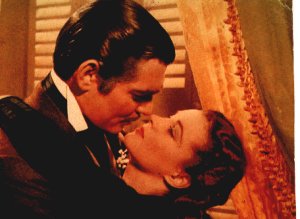Review Roundup
While I was still on break, I watched Richard Linklater's The Newton Boys. Linklater is one of the best filmmakers working today, but this film wasn't very good. All of his other movies have been set in either the present or the recent past (the 70s of Dazed and Confused). While I don't think he can only do movies about the present, Waking Life was certainly an interesting exploration of an odd world, but I think a Linklater film requires characters who exist in a world with relevance to the viewer. All of his other films have relatively universal themes, but The Newton Boys is a caper movie about bank robbers. You can't really relate to this, and the 1920s setting is further alienating. The movie has a lot more plot than your typical Linklater, and the film just doesn't quite work. You don't really care about the characters and things just go along, with no effect on the viewer. It's admirable to try something different, but this was a much too conventional film for Linklater. It didn't have any kind of personal touch.
I also saw Gone With the Wind. Now, this is an undisputed classic, and even today, 66 years after its original release, it's still a spectacular, visually dazzling film. In the film, there's a sense of discovery about the medium, like this film was trying to go beyond everything that had come before in terms of dazzling visuals. In this sense, it's tied to the art cinema of years later, when crafting impressive visuals is as important as crafting a coherent narrative. Despite being a four hour movie, not that much stuff happens, the narrative is really a showcase for visual splendor, and the film succeeds on that level. It's not a perfect film, there's issues surrounding race relations and some of the acting suffers from the typical overwroughtness of Hollywood studio era filmmaking, but by the time you reach "Frankly my dear I don't give a damn," it's pretty much impossible not to be impressed by what this film accomplished. The great films are always the ones that push the boundary of the medium in some way, and that's what this film did.
I also saw To Live by Zhang Yimou, the man who directed Hero, House of Flying Daggers and The Road Home. To Live is an earlier film, and to my mind, a much weaker film, or at least one that's less accessible to a Western audience. All his other films that I've seen are more about people than specific ties to Chinese history, with the arguable exception of Hero, but that's so visually rich, you can get by without knowing the history. To Live is all about the rise of communism in twentieth century China, and it falls into the trap of a lot of movies that cover a big chunk of time. This film goes from the 1930s to the 1960s, and even though a lot of stuff happens, I don't get a sense of consistent character arcs. It's more the world changes around the characters than the characters doing stuff to change their lives. So, I felt sort of removed from what was going on, and as the tragedies piled up, you eventually become numb to the bad stuff. This film was clearly meant for a Chinese audience, whereas someone like Wong Kar-Wai is making films that can appeal to pretty much anyone.
To Live could actually almost be a Chinese Gone with the Wind, since both films show the turmoil that a civil war causes for civilians, and the various trials they undergo. I think Gone With the Wind works better because it has a stronger emotional hook. You really care about Scarlett, and understand what she's going through, while the people in To Live change so much over time, you get the sense that they are just blank slates for whatever chunk of plot has to come next. While a film can succeed even if you aren't emotionally attached to the characters, To Live could not because it wasn't interesting enough on its own terms, it needed character hooks to make it work.
I also saw the film Blanc from the three colors trilogy. This was an odd film, a dark comedy that wasn't particularly funny, it was more about the absurdity of life. This felt a lot like the stereotypical art film, not much happens, it's set in Eastern Europe, doesn't really have a plot. There were some cool shots, particularly the wedding scenes, but on the whole this one didn't really work for me. I liked Bleu, the first of the trilogy, much better. And another strike against this film is Julie Delpy barely gets anything to do, seeing her on the box I assumed she'd have a bigger role, but that's more a fault of the marketing than of the film itself.
Related Posts
Finding Meaning in Discussion: On Linklater and the Before Duology (12/7/2004)
Dazed and Confused (3/23/2005)
Richard Linklater Day (7/22/2005)




No comments:
Post a Comment